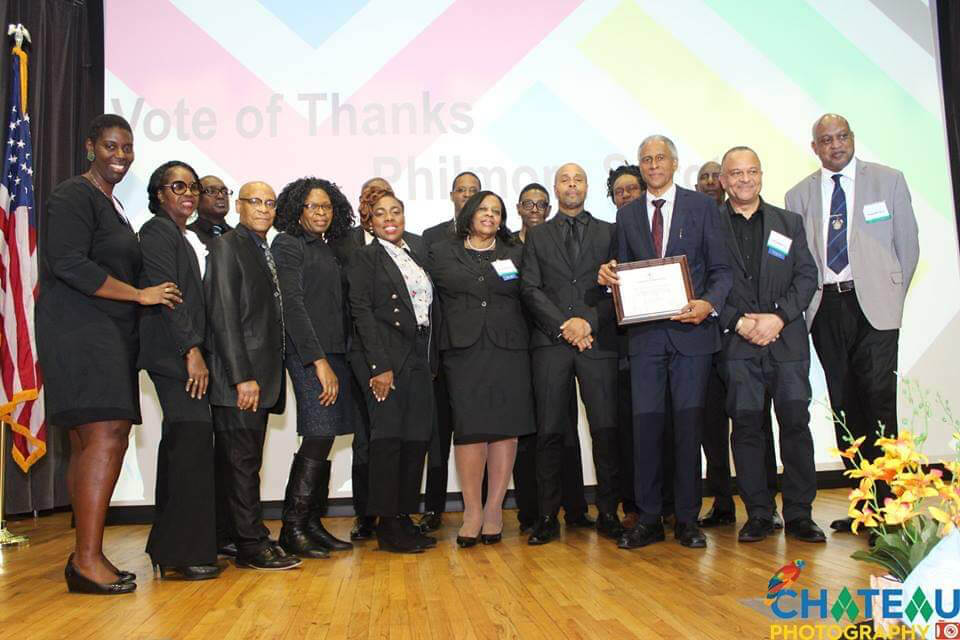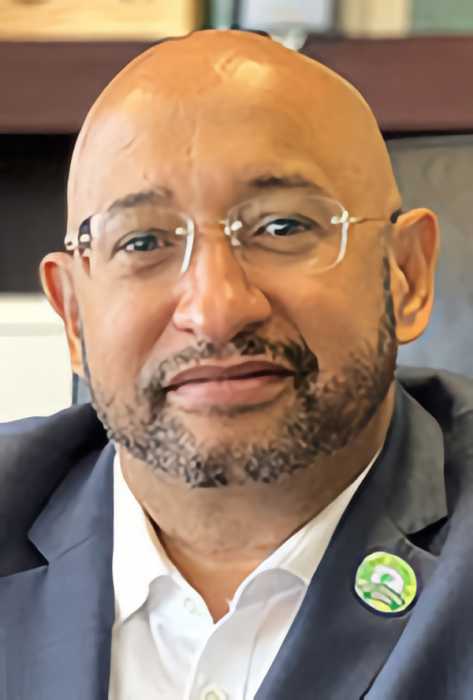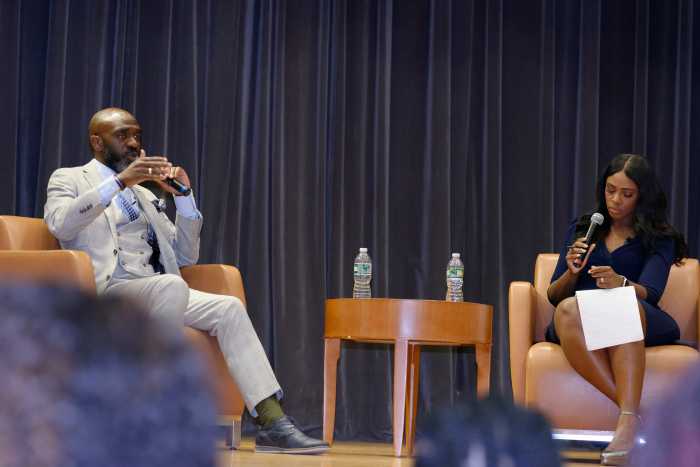In commemorating International Migrants Day 2020, the Brooklyn-based St. Vincent and the Grenadines Diaspora Committee of New York, Inc. says 2020 has been a year “like no other,” stating that it has been a year defined by “enormous global health and economic challenges that have shook the very fabric of our societies.”
“Few people have escaped the difficulties and losses brought about by the global coronavirus pandemic,” said committee chairperson, Sherrill-Ann Mason-Haywood, in a statement on Friday, marking International Migrants Day that is celebrated on Dec. 18 annually.
“Many persons, including Vincentians, who reside in cities like New York have suffered the loss of loved ones, livelihoods, secure housing, food and basic freedoms, such as the ability to travel or assemble,” she added. “Some of the effects are likely to extend well beyond the places where these immigrants live, as job losses may directly impact the ability to send home much-needed remittances upon which many families rely.
“Still, others have had to face the uncertainties of the pandemic with bravery, as their employment as ‘frontline or essential workers’ put them in the direct line of potential danger,” Mason-Haywood continued. “Many immigrant workers, including many Vincentians in the Diaspora, are counted among those who work in these essential professions, such as healthcare, transit and domestic work.
She noted that many immigrant communities have been among the hardest hit by the COVID-19 pandemic, stating that Vincentians, like many other Caribbean immigrants, have been among them.
“The SVG (St. Vincent and the Grenadines) Diaspora Committee sympathizes with Vincentians who have lost their loved ones during this pandemic,” Mason-Haywood said. “Additionally, prolonged months of isolation and separation from loved ones also threaten to cause a rise in mental health challenges.”
She said that while the full toll of loss and struggle may not be known for months, or even years to come, “it is clear that life in many communities will never be the same again.
“Everything has been disrupted,” she lamented. “The vibrancy of civic and social organizations that brought immigrant communities together have all but come to a crawl. And it is unlikely that things will return to any pre-pandemic normalcy anytime soon, if ever.”
Mason-Haywood said this is also true “even with the new reality of vaccinations heralded as a means to an end of the pandemic since skepticism is high among some immigrant populations regarding the safety and efficacy of the vaccines.
“Just as the US Census Bureau terms immigrant communities hard to count, health officials may face a similar feat and find immigrant communities hard to vaccinate,” she said. “But that is a whole other challenge.”
But, despite the numerous challenges in 2020, the Vincentian Diaspora head said “there has been some glimmer of hope, signaling that the resilience of the immigrant spirit is still alive.”
She noted that new businesses and online communities have sprung up, revealing “the underlying entrepreneurial spirit that exists among immigrants.
“Interestingly, many of these entities are spearheaded by women, who have often been the hidden figures in keeping communities afloat,” Mason-Haywood said.
She said numerous entities now offer an array of cooked and baked goods, seasonings, drinks, jewelry and even online marketing of goods and services.
“One would hope that opportunities will be seized by the relevant parties to seek out some of the new funding being made available to support small businesses,” Mason-Haywood said. “Maybe, just maybe, 2020 can turn out to offer some hope for business opportunities and business development that can be a catalyst for income or wealth generation and job creation.
“Just like the great pyramids of Egypt were not built in one day, but began with the laying of a single stone, maybe this year can actually be a year for reckoning and recalibration in our immigrant communities,” she added.
“Migrants around the globe have always been engines of innovation and creativity,” she continued. “Maybe, we can see some light at the end of the tunnel. May our future be filled with the prosperity that migrants dream of when they leave their homes in pursuit of their safety, security and happiness.”
In marking International Migrants Day, the United Nations underscored migrants’ “essential contribution to societies everywhere,”
and underlined migrants’ central role in recovery from the coronavirus pandemic.
In his message, UN Secretary-General António Guterres said that, in the midst of the global pandemic, societies have come to appreciate their dependence on migrants “who are too often invisible within our communities.
“Migrants have played an outsized role on the frontlines of responding to the crisis – from caring for the sick and elderly to ensuring food supplies during lockdowns,” he said. “Just as migrants are integral to our societies, they should remain central to our recovery.”
Guterres called for ensuring that migrants, irrespective of their legal status, are included in every country’s pandemic response, particularly in health and vaccination programming.
“On this International Migrants Day, let us seize the opportunity of the recovery from the pandemic to implement the Global Compact for Safe, Orderly and Regular Migration, reimagine human mobility, enable migrants to reignite economies at home and abroad and build more inclusive and resilient societies,” he urged.
António Vitorino, Director-General of UN International Organization for Migration (IOM), also applauded migrants globally as “champions of resilience when times are tough”, adding that as the world moves from pandemic response to recovery, they will be key to the return to normal life.
“But, for this to happen, we must reinforce the efforts already made by many countries to ensure migrants are fully included in our COVID-19 responses, including access to social services, and ensuring they do not get left behind,” he said.
The UN said there are an estimated 271 million migrants globally, as of 2019, “contributing immensely not only to economies of the countries they are working in but also supporting millions more back home, including through remittances.”
Similarly, UN independent human rights experts, including the Special Rapporteur on the human rights of migrants, called on all nations to treat all migrants with dignity, and provide them with equal access to services, benefits, information and assistance.
“States should consider migrant workers’ positive assets who bring labor, skills and diversity to host communities. Migrants and their families should be fully integrated in national plans to build back better and States should embrace a more inclusive and sustainable recovery from the pandemic, while implementing public health imperatives,” they urged in a statement.
The UN said the Special Rapporteurs and independent experts are part of what is known as the Special Procedures of the Human Rights Council.
They serve in their individual capacity and work on a voluntary basis. They are not UN staff and do not receive a salary, and are independent from any government or organization, the UN said.
The International Migrants Day was established by the UN General Assembly in December 2000, urging full respect for the human rights and fundamental freedoms of all migrants.





















